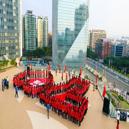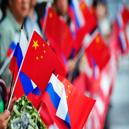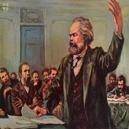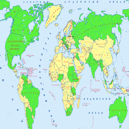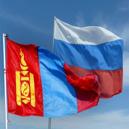За прошедшие 70 лет Китайская Народная Республика добилась громадных успехов в своём социально-экономическом развитии, вышла на второе место в мире по своей экономической мощи. Эти успехи объясняются тем, что все теоретические положения Компартии непременно проверяются практикой и только потом реализуются во всей полноте. В декабре 2018 г. Си Цзиньпин в докладе, посвященном сороковой годовщине политики реформ и открытости, выделил десять главных достижений, которые имеют отношение к внутренней и внешней политике китайского государства.
70 years of the People’s Republic of China
Over the past 70 years the People’s Republic of China has achieved great successes in its socio-economic development, China became to second place on its economic power in the World. These successes are explained by the fact that all theoretical itens are certainly tested by practice and only then are implemented in its entitety. In December 2018 Xi Jinping, in his report on the 40th anniversary of the policy of reform and openness, highlighted ten major achievements, that related to the domestic and foreign policy of the Chinese state.
 Ранний опыт государственного строительства большевиков и Конституция РСФСР 1918 года
Ранний опыт государственного строительства большевиков и Конституция РСФСР 1918 года
 7
7
 25429
|
Официальные извинения
25429
|
Официальные извинения
 972
972
 106071
|
Становление корпоративизма в современной России. Угрозы и возможности
106071
|
Становление корпоративизма в современной России. Угрозы и возможности
 239
239
 84968
84968

